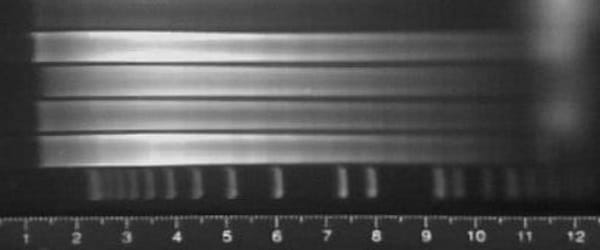In modern cell biology, we know that single cells are the fundamental unit of life and can exist as single cells (unicellular organisms) or combine to form multicellular organisms. But how did we reach this understanding? Let’s dive into a short history of cell biology.
A Quick Refresher on the Structure of Cells
Before we get started on the history of cell biology, let’s have a quick refresher on the basic structure of individual cells.
Cells come in various types, from prokaryotic cells, such as bacteria and archaea, to eukaryotic plant and animal cells. Within these groups, there are further distinct cell types, such as red blood cells, neurons, and epithelial cells.
These distinct cell types vary in their structures, depending on their cell specialization. However, cell membranes are a defining feature of cells. These are required to maintain a fixed environment within the cell. They regulate the movement of chemicals across the membrane both in and out of the cell.
Most cells also contain genetic material in the form of deoxyribonucleic acid (DNA). In eukaryotes, DNA is stored within a subcellular compartment known as the nucleus.
In prokaryotes, there are no intracellular membranes, and the DNA is located in the cytoplasm. Some types of cells with specific functions lack DNA, such as mature red blood cells. Figure 1 shows the general structure of prokaryotic and eukaryotic cells.

Cell Theory
The cell theory, or cell doctrine, states that all organisms are composed of similar basic units of organization called cells. The concept was formally articulated in 1839 by Schleiden & Schwann and has remained as the foundation of modern biology. The idea predates other great paradigms of biology, including Darwin’s theory of evolution (1859), Mendel’s laws of inheritance (1865), and the establishment of comparative biochemistry (1940).
First Cells Seen in Cork
While the invention of the telescope made the Cosmos accessible to human observation, the light microscope opened up smaller worlds, showing what living forms were composed of. The cell was first discovered and named by Robert Hooke in 1665. He remarked that it looked strangely similar to cellula or small rooms which monks inhabited, thus deriving the name.
However, what Robert Hooke actually saw was the dead cell walls of plant cells (cork) as they appeared under the microscope. Hooke’s description of these cells was published in Micrographia. The cell walls observed by Hooke did not indicate the nucleus and other organelles found in most living cells.
The first man to witness a live cell under a microscope was Anton van Leeuwenhoek, who, in 1674, described the algae Spirogyra. Van Leeuwenhoek probably also saw bacteria.
Formulation of the Cell Theory
In 1838, Theodor Schwann and Matthias Jakob Schleiden were enjoying after-dinner coffee and talking about their studies on cells. It has been suggested that when Schwann heard Matthias Schleiden describe plant cells with nuclei, he was struck by the similarity of these plant cells to animal cells he had observed in tissues.
The two scientists went immediately to Schwann’s lab to look at his slides. Schwann published his book on animal and plant cells (Schwann 1839) the next year, a treatise devoid of acknowledgments of anyone else’s contribution, including that of Schleiden (1838). He summarized his observations into three conclusions about cells:
- The cell is the fundamental unit of structure, physiology, and organization in living things.
- The cell retains a dual existence as a distinct entity and a building block in the construction of organisms.
- Cells form by free-cell formation, similar to the formation of crystals (spontaneous generation).
We know today that the first two tenets are correct, but the third is clearly wrong. The correct interpretation of cell formation by division was finally promoted by others and formally enunciated in Rudolph Virchow’s powerful dictum, Omnis cellula e cellula,: “All cells only arise from pre-existing cells”.
Modern Cell Theory
- All known living things are made up of cells.
- The cell is the structural & functional unit of all living things.
- All cells come from pre-existing cells by division. (Spontaneous Generation does not occur).
- Cells contain hereditary information, which is passed from cell to cell during cell division.
- All cells are basically the same in chemical composition.
- All energy flow (metabolism & biochemistry) of life occurs within cells.
As with the rapid growth of molecular biology in the mid-20th century, cell biology research exploded in the 1950s. It became possible to maintain, grow, and manipulate cells outside of living organisms.
The first continuous cell line to be so cultured was in 1951 by George Otto Gey and coworkers, derived from cervical cancer cells taken from Henrietta Lacks, who died from her cancer in 1951. The cell line, which was eventually referred to as HeLa cells, has been the watershed in studying cell biology in the way that the structure of DNA was the significant breakthrough of molecular biology.
In an avalanche of progress in the study of cells, the coming decade included the characterization of the minimal media requirements for cells and the development of sterile cell culture techniques. It was also aided by the prior advances in electron microscopy, and later advances such as the development of transfection methods, the discovery of green fluorescent protein in jellyfish, and the discovery of small interfering RNA (siRNA), among others.
The study of the structure and function of cells continues today in a branch of biology known as cytology. Advances in equipment, including cytology microscopes and reagents, have allowed this field to progress, particularly in the clinical setting.
The History of Cell Biology Timeline
Below is a timeline of some of the key events in the development of cell theory and cell biology.
1595 – Jansen is credited with the first compound microscope.
1655 – Hooke described ‘cells’ in cork.
1674 – Leeuwenhoek discovered protozoa. He saw bacteria some nine years later.
1833 – Brown described the cell nucleus in cells of the orchid.
1838 – Schleiden and Schwann proposed cell theory.
1840 – Albrecht von Roelliker realized that sperm cells and egg cells are also cells.
1856 – N. Pringsheim observed how a sperm cell penetrated an egg cell.
1858 – Rudolf Virchow (physician, pathologist, and anthropologist) expounds his famous conclusion: omnis cellula e cellula, that is, cells develop only from existing cells (cells come from preexisting cells).
1857 – Kolliker described mitochondria.
1879 – Flemming described chromosome behavior during mitosis.
1883 – Germ cells are haploid, chromosome theory of heredity.
1898 – Golgi described the Golgi apparatus.
1938 – Behrens used differential centrifugation to separate nuclei from cytoplasm.
1939 – Siemens produced the first commercial transmission electron microscope.
1952 – Gey and coworkers established a continuous human cell line.
1955 – Eagle systematically defined the nutritional needs of animal cells in culture.
1957 – Meselson, Stahl, and Vinograd developed density gradient centrifugation in cesium chloride solutions for separating nucleic acids.
1965 – Ham introduced a defined serum-free medium. Cambridge Instruments produced the first commercial scanning electron microscope.
1976 – Sato and colleagues publish papers showing that different cell lines require different mixtures of hormones and growth factors in serum-free media.
1981 – Transgenic mice and fruit flies are produced. Mouse embryonic stem cell line established.
1995 – Tsien identifies a mutant of GFP with enhanced spectral properties.
1998 – Mice are cloned from somatic cells.
1999 – Hamilton and Baulcombe discovered siRNA as part of post-transcriptional gene silencing (PTGS) in plants.
2006 – Factors required to create induced pluripotent stem cells are identified, allowing stem cells to be created from differentiated cells.
2009 – Single-cell sequencing makes its debut, allowing insight into transcriptomics at the resolution of individual cells.
2009 – First paper published using organoids derived from a single adult stem cell.
2012 – CRISPR gene editing is developed, allowing precise RNA-targetted genome engineering.
A History of Cell Biology Summarized
In the history of cell biology, there have been many individual scientific discoveries and technological developments, from the invention of the microscope, allowing us to see individual cells, to the discovery of fluorescent proteins and the invention of powerful electron microscopes, allowing us to study the function and structure of cells in greater detail.
Nowadays, the availability of microscopes means that most people can now see cells for themselves. Read our article on how to turn a mobile phone into a simple microscope to appreciate how accessible the cellular world is.
Originally published November 2007. Reviewed and updated October 2023.
Further Reading on the History of Cell Biology
- Landmark Papers in Cell Biology: Selected Research Articles Celebrating Forty Years of The American Society for Cell Biology. 2000. Cold Spring Harbor Laboratory Press.
- Mazzarello P. A unifying concept: the history of cell theory. Nat Cell Biol. 1999. 1(1):E13-5.



